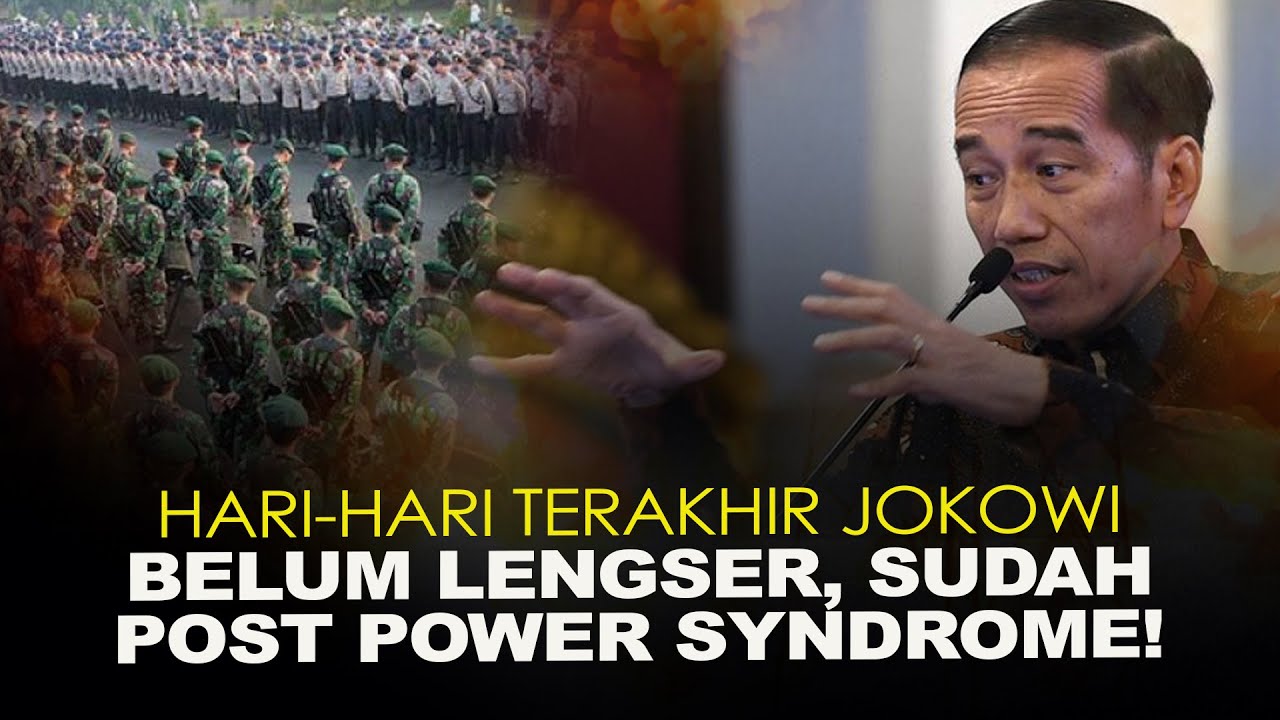BONGKAR KEBOHONGAN DAN KELUCUAN IKN, PENDUKUNG JOKOWI JANGAN NONTON NANTI SAKIT HATI BAHAYA ⚠️
Summary
TLDRThe transcript discusses the development of Indonesia's new capital, IKN, under President Jokowi's administration, highlighting both the ambitious vision and the problematic realities on the ground. Despite the massive budget allocation and progress, many buildings remain incomplete, and infrastructure such as transportation is underwhelming. The speaker shares their observations from a visit to IKN, emphasizing that the project has failed to live up to its futuristic expectations, describing it as a 'dystopia' rather than a utopia. The video presents a critical perspective on the project’s status and future potential.
Takeaways
- 😀 The speaker critiques the notion of the IKN (Ibu Kota Negara) project, questioning if it is truly a utopia or a dystopia in disguise.
- 😀 The idea of IKN as a grand, idealized vision of a new capital city is contrasted with the potential reality of it becoming a nightmare.
- 😀 The phrase 'Utopia becomes Dystopia' suggests that even grand dreams can turn into difficult and unwanted outcomes.
- 😀 The speaker mentions that the IKN project represents more than just a change of location; it embodies a shift in national identity and ambition.
- 😀 There is a sense of skepticism about the feasibility and practicality of the IKN project, implying that it might not live up to its expectations.
- 😀 The speaker raises questions about whether such large-scale projects truly benefit the people or if they are driven by political and economic interests.
- 😀 The speaker emphasizes the importance of preserving rational thinking and maintaining a critical perspective on grand national projects.
- 😀 The tone of the speaker suggests a growing concern among citizens about the direction of such large-scale, government-led initiatives.
- 😀 The mention of 'Nightmare' conveys the fear of the IKN project becoming a failed experiment or a misstep in national development.
- 😀 The closing statement calls for an ongoing awareness and engagement with such projects, urging the audience to stay grounded in reality and avoid utopian ideals that may not materialize.
Q & A
What is the central theme discussed in the transcript regarding Indonesia's new capital (IKN)?
-The central theme is the criticism of the ongoing development of Indonesia's new capital city (IKN), with a focus on its incomplete infrastructure, inadequate transportation system, and the disappointing outcomes of a recent public event marking the nation's Independence Day.
What are the major criticisms regarding the infrastructure of IKN?
-The infrastructure of IKN is criticized for being incomplete, with key government buildings like the Garuda-shaped palace still unfinished. The development falls short of the ambitious goals set for the new capital.
How is the transportation system in IKN perceived?
-The transportation system, particularly the 'shuttle' service, is criticized as inadequate. It is described as more of a tourist attraction rather than a functional public transport system, highlighting the lack of proper transportation infrastructure.
What was the significance of the 17th August event for IKN, and how was it received?
-The 17th August event, celebrating Indonesia's Independence Day at IKN, was meant to showcase the progress of the new capital. However, it was poorly received, with the event failing to make a significant impact on national media, reflecting poorly on the development of the city.
What comparison is made between IKN and other global capital cities?
-The speaker compares IKN to cities like Dubai, Qatar, and Singapore, suggesting that IKN has fallen far short in terms of both its infrastructure and overall development. The comparison highlights the vast difference in urban planning and execution between IKN and these successful cities.
What term does the speaker use to describe the current state of IKN, and why?
-The speaker describes IKN as a 'dystopia' rather than a 'utopia,' expressing disappointment that the capital city, instead of being a symbol of hope and progress, has turned into a 'nightmare' due to its unfinished state and poor planning.
How do local communities feel about the development of IKN?
-Local communities, particularly those who supported the development of IKN, feel excluded from important events, such as the 17th August celebration. They have expressed frustration and a sense of alienation due to their lack of involvement in the project and the event.
Why does the speaker refer to IKN as a 'nightmare'?
-The speaker refers to IKN as a 'nightmare' because of its underwhelming development and the gap between the ambitious promises made for the capital city and the reality of its incomplete infrastructure and inadequate services.
What role does the unfinished Garuda-shaped palace play in the criticism of IKN?
-The Garuda-shaped palace, one of the central symbols of IKN, is highlighted as an example of the project's failure to deliver on its promises. Its unfinished state symbolizes the broader issues of incomplete development and delayed infrastructure projects.
What expectations did the speaker have for IKN, and how have these been unmet?
-The speaker had high expectations for IKN to be a modern, thriving city that could compete with global capitals. However, these expectations have not been met due to the slow pace of development, lack of infrastructure, and the failure to create a livable, functional city.
Outlines

此内容仅限付费用户访问。 请升级后访问。
立即升级Mindmap

此内容仅限付费用户访问。 请升级后访问。
立即升级Keywords

此内容仅限付费用户访问。 请升级后访问。
立即升级Highlights

此内容仅限付费用户访问。 请升级后访问。
立即升级Transcripts

此内容仅限付费用户访问。 请升级后访问。
立即升级浏览更多相关视频

JOKOWI BERBOHONG! IKN BUKAN KEPUTUSAN RAKYAT, TAPI AMBISI PRIBADINYA

Ambisi besar Indonesia di tatanan ekonomi global, hilirisasi nikel jawabannya? | DW Business Beyond

Aguan Buka Kartu Soal IKN, Sinyal Kuat Oligarki Tinggalkan Jokowi?

[EKSKLUSIF] Jokowi soal IKN, Gibran, dan "Adili Jokowi" | Mata Najwa

Catatan Suram 10 Tahun Pemerintahan Jokowi | Keep Talking #86

HARI-HARI TERAKHIR JOKOWI. BELUM LENGSER, SUDAH POST POWER SYNDROME!
5.0 / 5 (0 votes)
